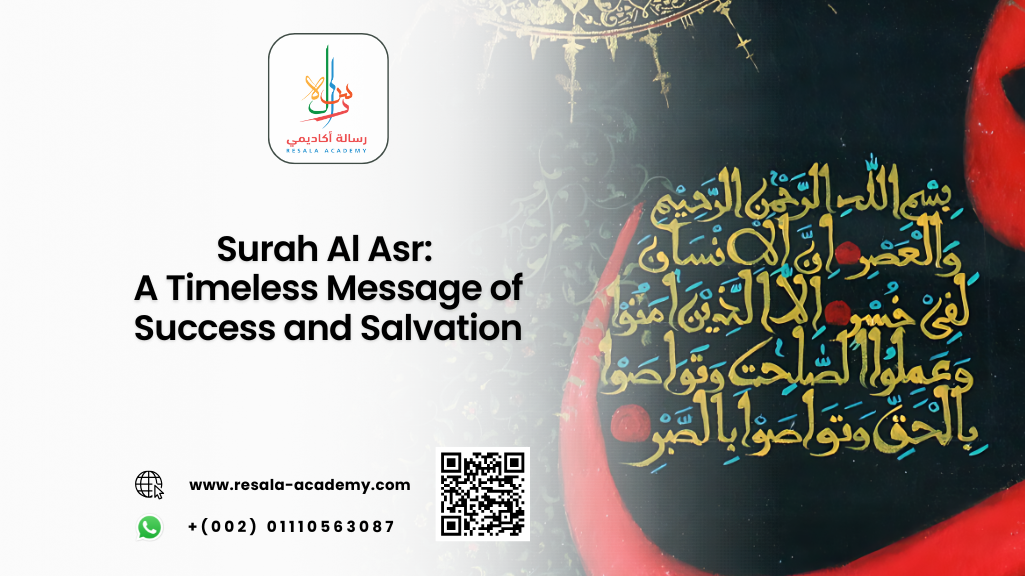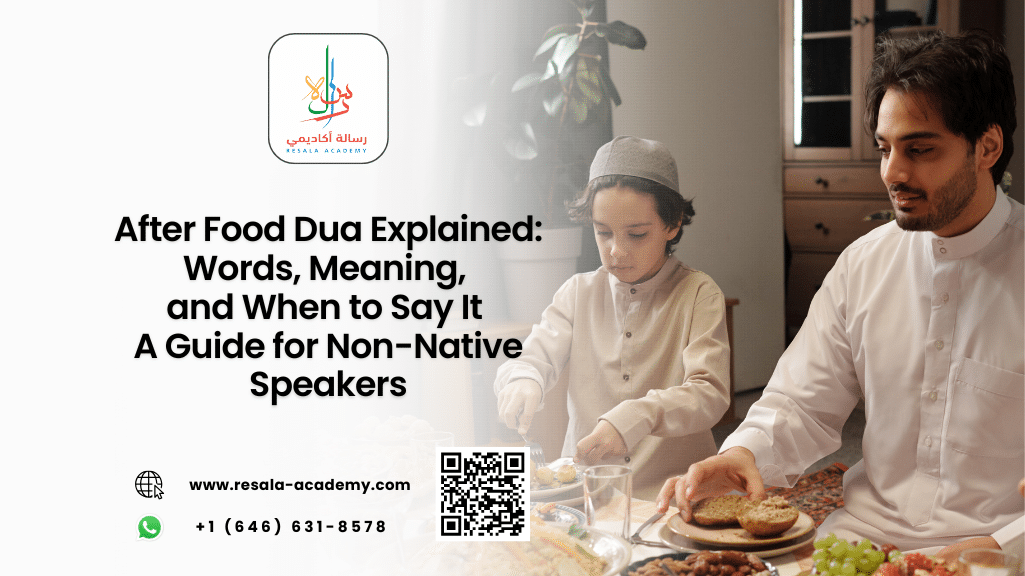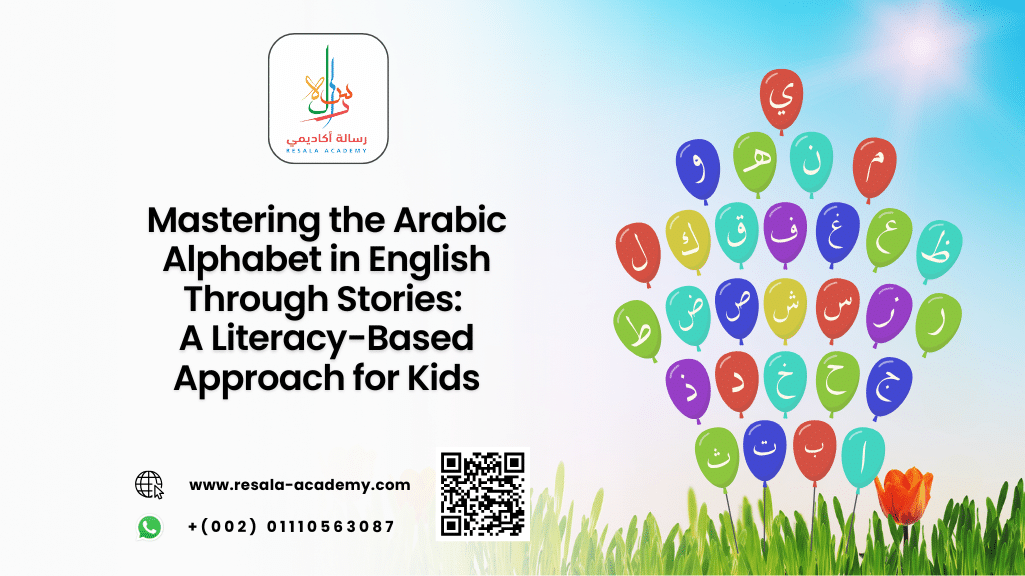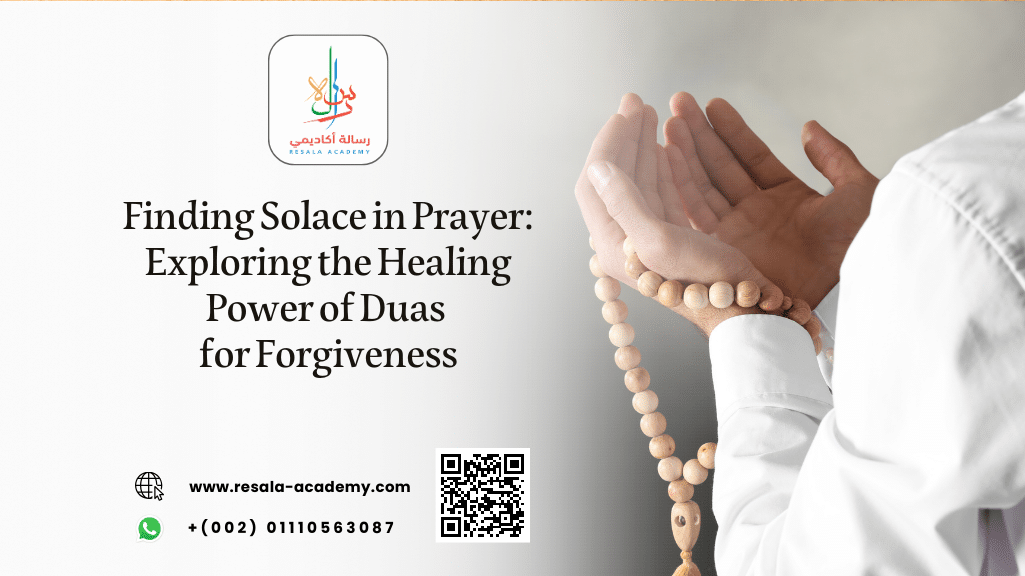Table of Contents
Why Do Muslims Say Subhanallah? Discover the Meaning and Its Impact
In the rich and expressive tapestry of the Arabic language, few words carry the spiritual weight and profound beauty of the phrase Subhanallah. Reverberating through the hearts of millions of Muslims across the globe, this divine utterance is more than just a word—it is a declaration of awe, reverence, and deep spiritual consciousness.
But for non-native speakers and those exploring Islamic studies, the question often arises: What does Subhanallah mean? Why is it so frequently used? And what impact does it have on the soul and daily life?
In this comprehensive guide, we will explore the subhanallah meaning, its translation, context in the Quran and Hadith, and how it can transform your spiritual journey. We will also introduce you to Resala Academy, a leading institution that helps non-native speakers master Arabic and Quranic studies with ease and authenticity.
What Does Subhanallah Mean?
The Arabic phrase Subhanallah (سُبْحَانَ ٱللَّٰهِ) is often translated as:
“Glory be to Allah” or “Exalted is Allah.”
But this translation of Subhanallah only scratches the surface. The definition of Subhanallah comes from the root word “س ب ح” (s-b-ḥ), which implies glorifying, declaring perfection, and distancing from any imperfection.
Thus, when a Muslim says Subhanallah, they are affirming that Allah is free from all flaws, defects, or limitations. It is a declaration of divine perfection, an acknowledgment that Allah is beyond human comprehension and above all worldly attributes.
The Spiritual Impact of Saying Subhanallah
1. A Reminder of Divine Perfection
Saying Subhanallah reminds the believer that Allah is perfect in all His attributes—His knowledge, power, mercy, and wisdom. It is a verbal form of worship that elevates the heart and mind above worldly distractions.
2. A Shield Against Negativity
In moments of frustration, awe, or even anger, uttering Subhanallah redirects the soul toward patience and gratitude. It becomes a spiritual anchor in turbulent times.
3. A Daily Act of Worship
According to a Hadith in Sahih Muslim:
كَلِمَتَانِ خَفِيفَتَانِ عَلَى اللِّسَانِ ثَقِيلَتَانِ فِي الْمِيزَانِ حَبِيبَتَانِ إِلَى الرَّحْمَنِ سُبْحَانَ اللَّهِ وَبِحَمْدِهِ سُبْحَانَ اللَّهِ الْعَظِيمِ
Two are the expressions which are light on the tongue, but heavy in scale, dear to the Compassionate One:” Exalted is Allah (He is free from imperfection) and all praise is due to Him” ;” Exalted is Allah (He is free from imperfection), the Great.”
This Hadith emphasizes the immense reward of repeating Subhanallah wa bihamdihi, a phrase that combines glorification and praise.
Subhanallah in the Quran: Divine Context and Meaning
The phrase Subhanallah appears in various forms throughout the Quran, often as a response to the majesty and perfection of Allah’s creation.
Example 1: Surah Al-Isra (17:1)
سُبْحَانَ ٱلَّذِىٓ أَسْرَىٰ بِعَبْدِهِۦ لَيْلًۭا
“Glory be to the One Who took His servant ˹Muḥammad˺ by night”
— Quran 17:1
This verse begins with Subhan, glorifying Allah before narrating the miraculous journey of the Prophet Muhammad ﷺ during Al-Isra’ wal-Mi’raj.
Example 2: Surah Al-Hashr (59:24)
يُسَبِّحُ لَهُۥ مَا فِى ٱلسَّمَـٰوَٰتِ وَٱلْأَرْضِ ۖ وَهُوَ ٱلْعَزِيزُ ٱلْحَكِيمُ
“Whatever is in the heavens and the earth ˹constantly˺ glorifies Him. And He is the Almighty, All-Wise.”
— Quran 59:24
Here, the act of glorifying Allah is not limited to humans—everything in existence participates in this divine praise.
The Linguistic Beauty Behind Subhanallah
The word Subhanallah is in the form of a verbal noun (masdar), which implies a continuous and timeless action. It’s not just a statement; it’s an eternal truth. In Arabic rhetoric, this form adds depth and permanence to the glorification.
Moreover, when paired with other phrases like:
- Alhamdulillah (All praise is due to Allah)
- Allahu Akbar (Allah is the Greatest)
…the trio becomes a powerful spiritual formula. Many Muslims recite:
Subhanallah, Alhamdulillah, Allahu Akbar
— especially after daily prayers, as taught by the Prophet ﷺ.
This combination is mentioned in a Hadith:
أَلاَ أُحَدِّثُكُمْ بِأَمْرٍ إِنْ أَخَذْتُمْ بِهِ أَدْرَكْتُمْ مَنْ سَبَقَكُمْ وَلَمْ يُدْرِكْكُمْ أَحَدٌ بَعْدَكُمْ، وَكُنْتُمْ خَيْرَ مَنْ أَنْتُمْ بَيْنَ ظَهْرَانَيْهِ، إِلاَّ مَنْ عَمِلَ مِثْلَهُ تُسَبِّحُونَ وَتَحْمَدُونَ، وَتُكَبِّرُونَ خَلْفَ كُلِّ صَلاَةٍ ثَلاَثًا وَثَلاَثِينَ ”. فَاخْتَلَفْنَا بَيْنَنَا فَقَالَ بَعْضُنَا نُسَبِّحُ ثَلاَثًا وَثَلاَثِينَ، وَنَحْمَدُ ثَلاَثًا وَثَلاَثِينَ، وَنُكَبِّرُ أَرْبَعًا وَثَلاَثِينَ. فَرَجَعْتُ إِلَيْهِ فَقَالَ ” تَقُولُ سُبْحَانَ اللَّهِ، وَالْحَمْدُ لِلَّهِ، وَاللَّهُ أَكْبَرُ، حَتَّى يَكُونَ مِنْهُنَّ كُلِّهِنَّ ثَلاَثًا وَثَلاَثِينَ ”.
“Shall I not tell you a thing upon which if you acted you would catch up with those who have surpassed you? Nobody would overtake you and you would be better than the people amongst whom you live except those who would do the same. Say “Subhana l-lah”, “Al hamdu li l-lah” and “Allahu Akbar” thirty three times each after every (compulsory) prayer.” We differed and some of us said that we should say, “Subhan-al-lah” thirty three times and “Al hamdu li l-lah” thirty three times and “Allahu Akbar” thirty four times. I went to the Prophet (ﷺ) who said, “Say, “Subhan-al-lah” and “Al hamdu li l-lah” and “Allahu Akbar” all together [??], thirty three times.”
This practice is a means of spiritual purification and mental clarity.
Related Phrases and Their Meanings
Understanding the meaning of Subhanallah becomes even richer when we explore its related expressions:
Subhanallah wa bihamdihi meaning
This phrase means:
“Glory is to Allah and praise is to Him.”
It combines glorification (Subhanallah) with gratitude (wa bihamdihi), making it one of the most beloved phrases to Allah.
As the Prophet ﷺ said:
مَنْ قَالَ سُبْحَانَ اللَّهِ وَبِحَمْدِهِ. فِي يَوْمٍ مِائَةَ مَرَّةٍ حُطَّتْ خَطَايَاهُ، وَإِنْ كَانَتْ مِثْلَ زَبَدِ الْبَحْرِ
“Allah’s Messenger (ﷺ) said, “Whoever says, ‘Subhan Allah wa bihamdihi,’ one hundred times a day, will be forgiven all his sins even if they were as much as the foam of the sea.”
Alhamdulillah Subhanallah Allahu Akbar meaning
This trio encapsulates the core of Islamic belief:
- Alhamdulillah – Gratitude for all blessings.
- Subhanallah – Recognition of divine perfection.
- Allahu Akbar – Affirmation of Allah’s greatness.
Together, they form a spiritual compass for every believer.
Read more about: Top 5 Proven Dua for Passing Examination Every Student Should Know
Deepening the Subhanallah Meaning Through Arabic Morphology
Understanding the subhanallah meaning becomes even more profound when explored through the lens of Arabic morphology (sarf). For learners of Arabic and Quranic studies, this linguistic insight reveals the depth of the phrase far beyond its surface translation.
- Root Analysis: The word “Subhanallah” is derived from the triliteral root س-ب-ح (sīn-bā-ḥā), which conveys the idea of swimming or moving swiftly—symbolically representing the act of constantly glorifying Allah.
- Masdar Form: “Subhan” is a verbal noun (masdar) in the Arabic language, indicating a continuous action. This implies that glorification is not a one-time act but an ongoing, timeless process.
- Contextual Usage: In Quranic Arabic, the masdar form is often used to emphasize the grandeur and permanence of an action. Thus, the definition of Subhanallah as “Glory be to Allah” carries the weight of eternal praise.
- Linguistic Precision: Unlike the English translation, which may seem static, the Arabic form suggests divine transcendence that is active and ever-present, enhancing the spiritual experience for learners.
Integrating Subhanallah into Quranic Recitation and Tafsir Study
For students of the Quran, integrating the meaning of Subhanallah into their recitation and tafsir (exegesis) study can offer a transformative learning experience. This approach not only enriches vocabulary but also deepens spiritual reflection.
- Tafsir Enrichment: When studying verses like Surah Al-A’la (87:1) — “سَبِّحِ ٱسْمَ رَبِّكَ ٱلْأَعْلَىٰ” (“Glorify the name of your Lord, the Most High”) — learners can connect the command to say Subhanallah with its theological and linguistic implications.
- Pronunciation Practice: Repeating Subhanallah wa bihamdihi meaning phrases during tajweed (Quranic phonetics) lessons improves articulation and memorization, especially for non-native speakers.
- Thematic Study: Exploring how alhamdulillah subhanallah allahu akbar meaning appears in Hadith and daily dhikr routines helps learners internalize key Islamic values like gratitude, humility, and reverence.
- Applied Learning: At Resala Academy, students are guided to apply these phrases in real-life contexts—during prayer, reflection, and even in Arabic conversation—bridging theory and practice seamlessly.
These advanced insights not only enhance your understanding of the subhanallah meaning but also elevate your Quranic journey with linguistic and spiritual precision.
Learn Arabic and Quran with Resala Academy
For non-native speakers, understanding phrases like Subhanallah in their full depth requires more than just translation—it requires immersion. That’s where Resala Academy’s Online Islamic Course comes in.
Why Choose Resala Academy?
✅ Specialized in teaching Arabic and Quran to non-native speakers.
✅ Qualified native Arab instructors with Ijazah certification.
✅ Flexible online classes tailored to your schedule.
✅ Interactive learning with real-time feedback.
✅ Courses for all levels—from beginner to advanced.
Whether you’re learning the definition of Subhanallah or diving into Quranic Arabic, Resala Academy offers a structured path to fluency and spiritual growth.
Your Spiritual Journey Begins Here: Enroll with Resala Academy
Are you ready to elevate your understanding of Islamic expressions like Subhanallah? Do you want to connect with the Quran in its original language and feel the beauty of every verse?
At Resala Academy, you don’t just learn Arabic—you live it. With expert instructors, personalized lessons, and a supportive learning environment, your journey to mastering Quranic Arabic is just a click away.
Don’t wait. Start your journey today and experience the joy of understanding the Quran as it was revealed. Click here to enroll now
Frequently Asked Questions (FAQs)
1. What is the literal meaning of Subhanallah?
The literal meaning of Subhanallah is “Glory be to Allah” or “Exalted is Allah.” It signifies that Allah is free from any imperfection or deficiency.
2. When should I say Subhanallah?
You can say Subhanallah at any time, especially:
- When witnessing something beautiful or awe-inspiring.
- During prayer and dhikr (remembrance of Allah).
- After completing daily prayers (33 times as per Hadith).
3. What is the difference between Subhanallah and Alhamdulillah?
- Subhanallah = Declaring Allah’s perfection.
- Alhamdulillah = Expressing gratitude to Allah.
Both are forms of worship but serve different spiritual functions.
4. Is there a reward for saying Subhanallah?
Yes! According to Hadith:
مَنْ قَالَ سُبْحَانَ اللَّهِ وَبِحَمْدِهِ. فِي يَوْمٍ مِائَةَ مَرَّةٍ حُطَّتْ خَطَايَاهُ، وَإِنْ كَانَتْ مِثْلَ زَبَدِ الْبَحْرِ
“Whoever says, ‘Subhan Allah wa bihamdihi,’ one hundred times a day, will be forgiven all his sins even if they were as much as the foam of the sea.”
— Sahih Bukhari 6405
5. How can I learn more Arabic phrases like Subhanallah?
The best way is to enroll in a structured course. Resala Academy offers specialized programs for non-native speakers to learn Arabic and Quran with expert guidance.
Conclusion
The phrase Subhanallah is more than a word—it is a gateway to divine connection, spiritual clarity, and inner peace. Whether you’re marveling at nature, seeking comfort in hardship, or simply remembering your Creator, this sacred utterance elevates your soul.
By understanding the subhanallah meaning and its context in the Quran and Hadith, you open your heart to a deeper relationship with Allah. And with the help of Resala Academy, you can go beyond translation and truly live the language of the Quran.
Start your journey today. Let every “Subhanallah” you say be a step closer to divine understanding. Explore more at Resala Academy – Where Arabic Meets the Heart.




